
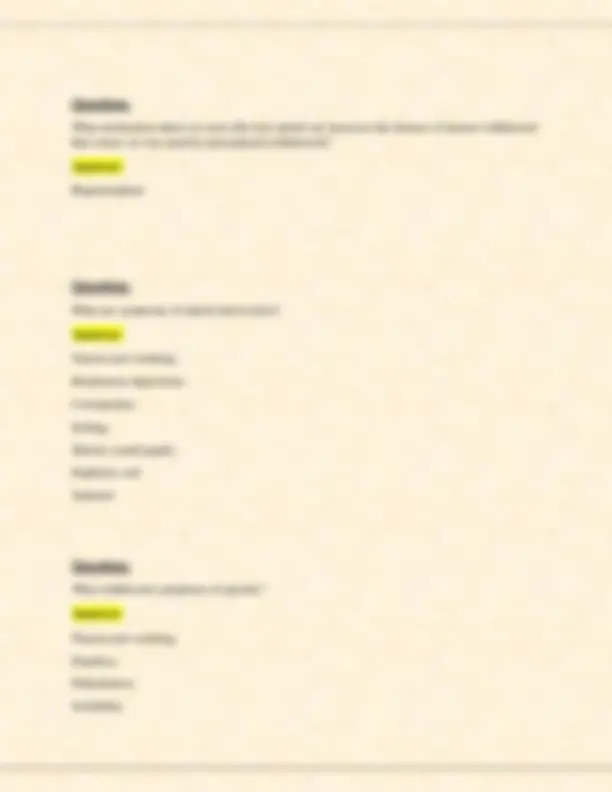
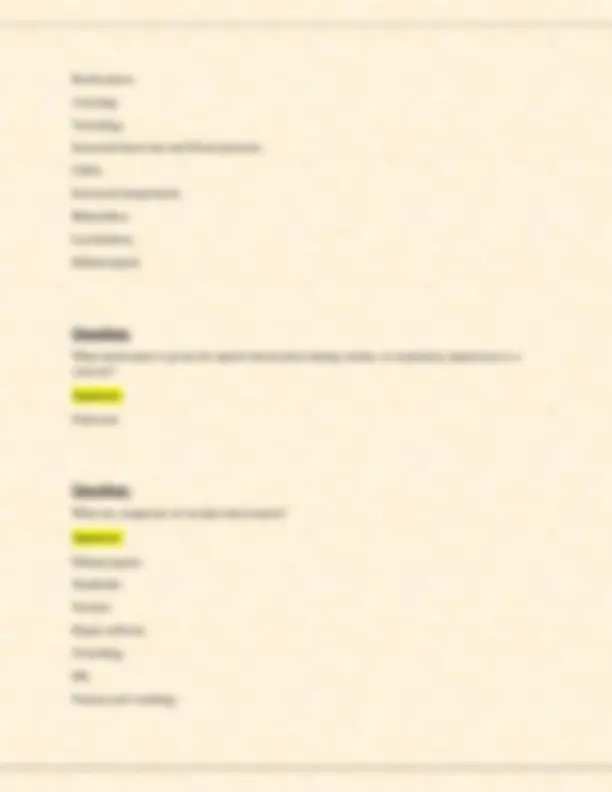
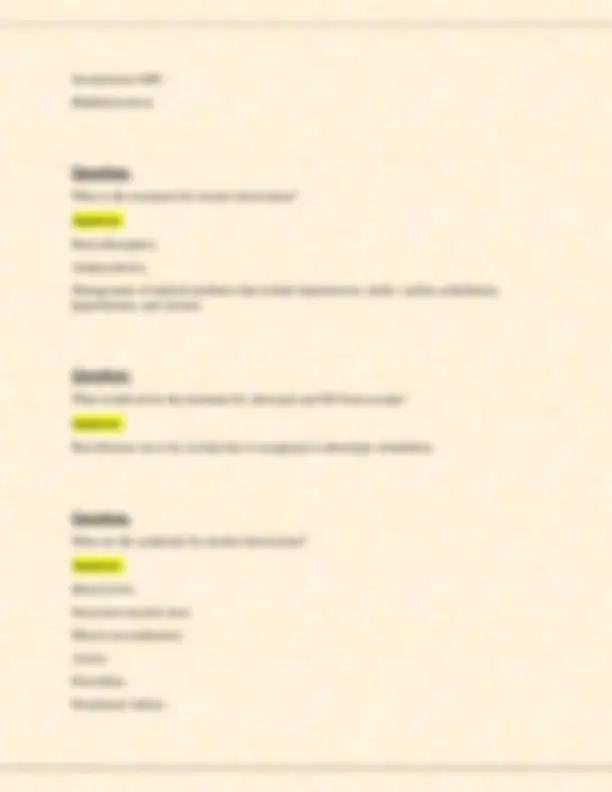
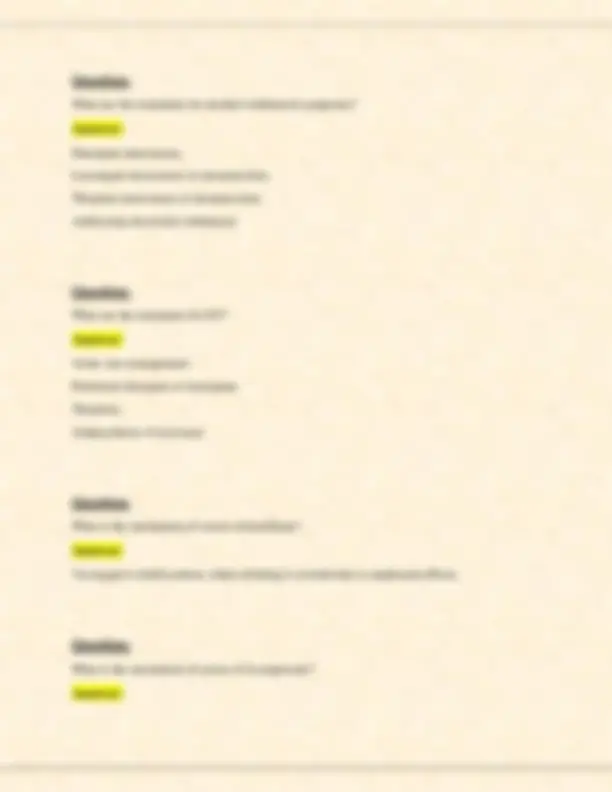
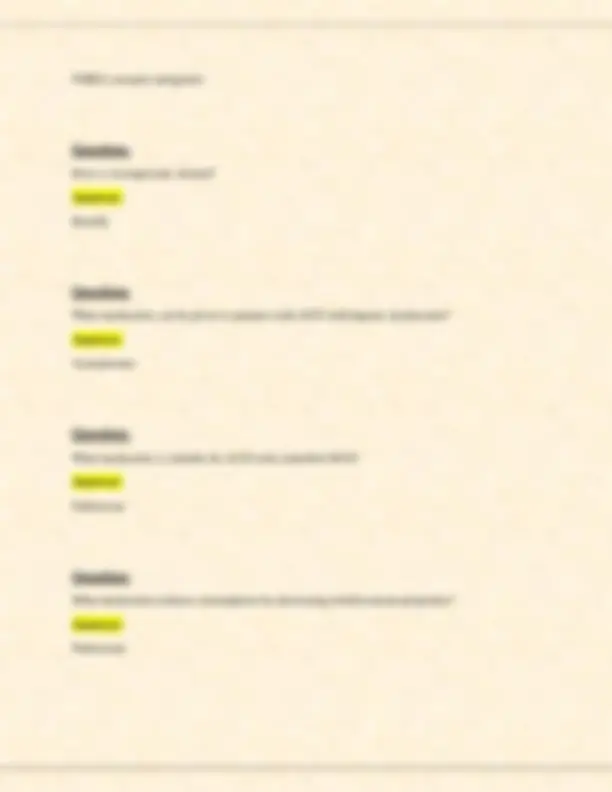
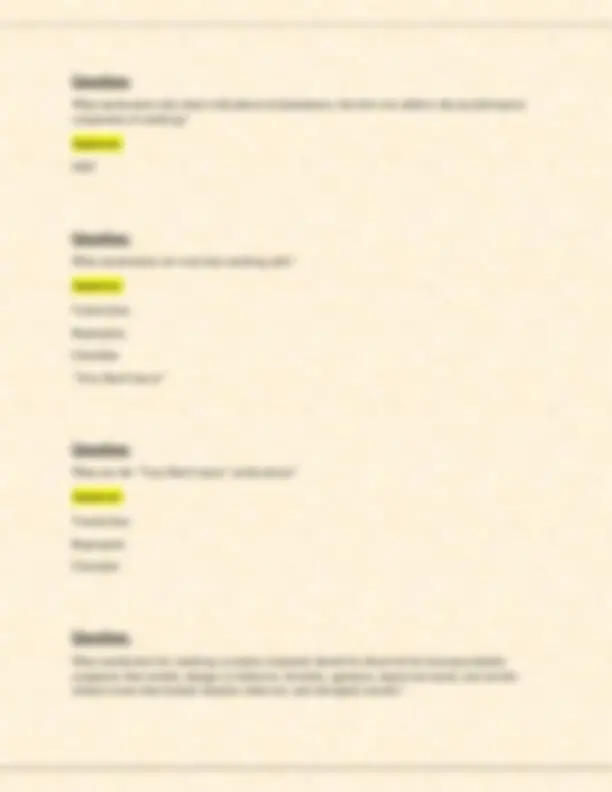
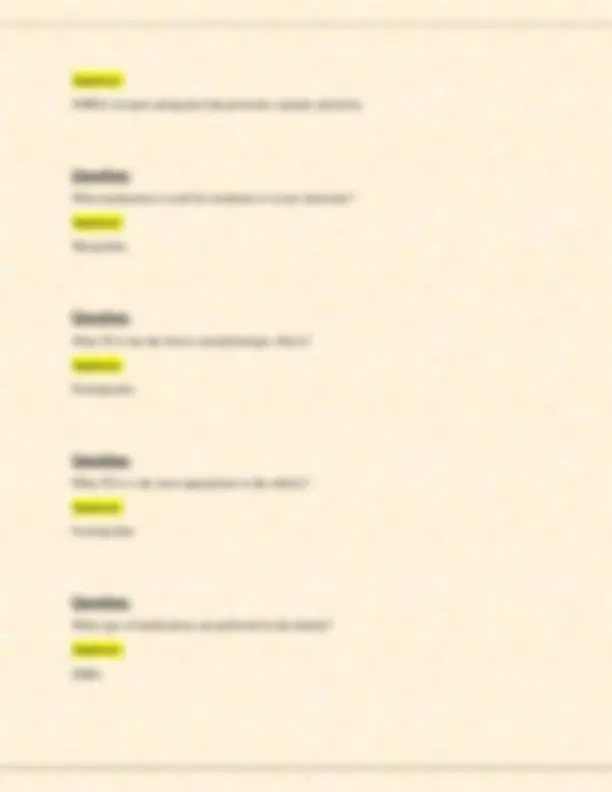
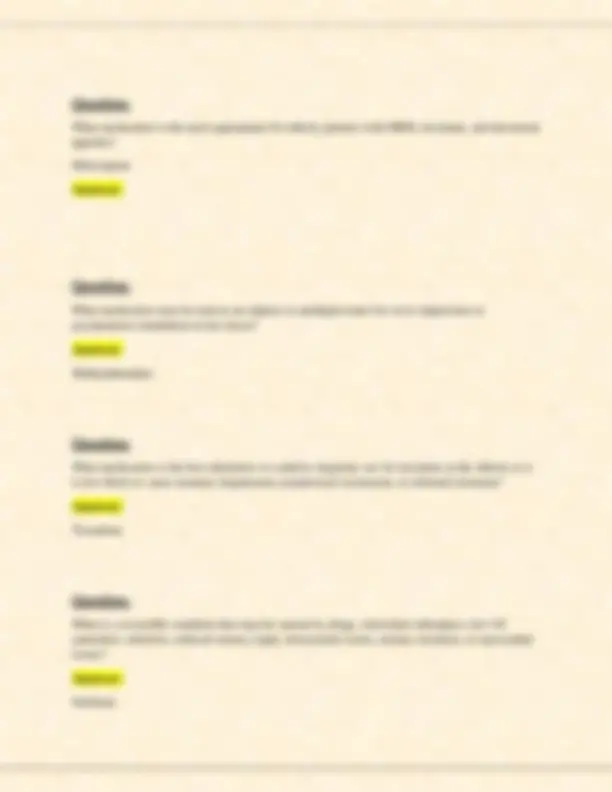
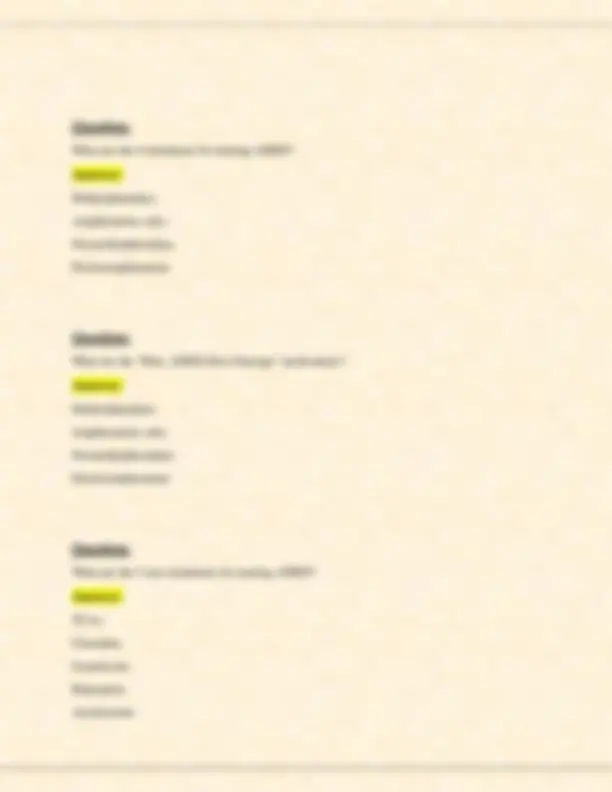
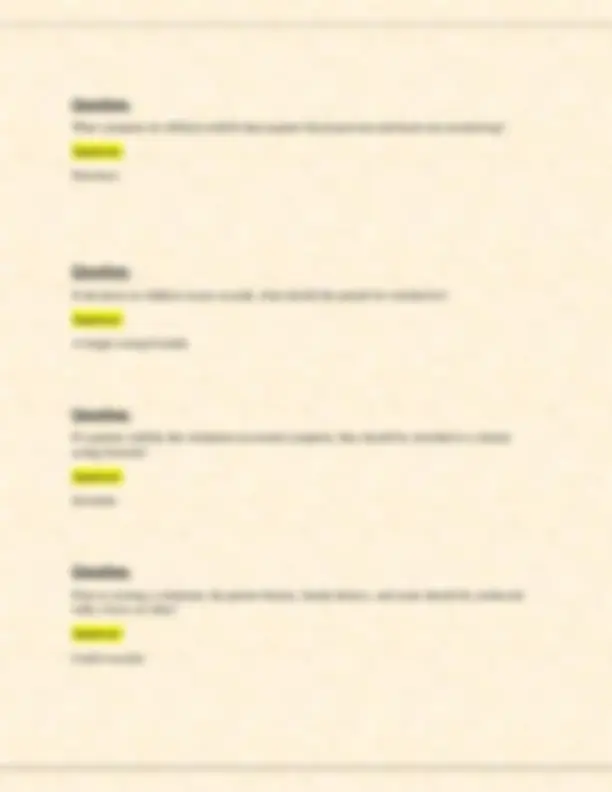
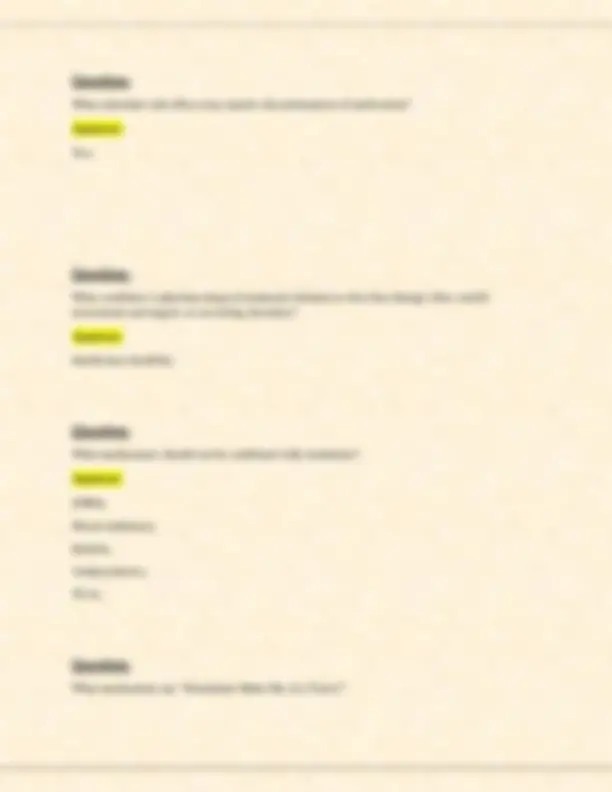
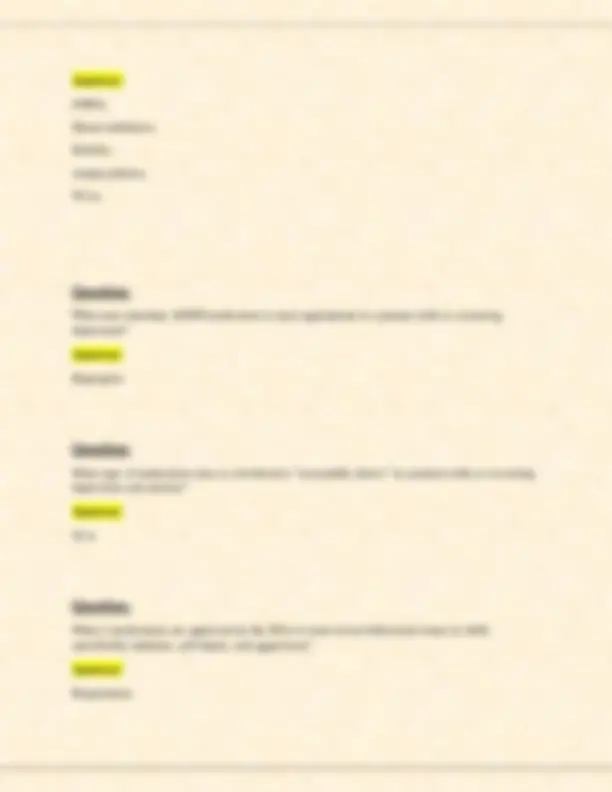
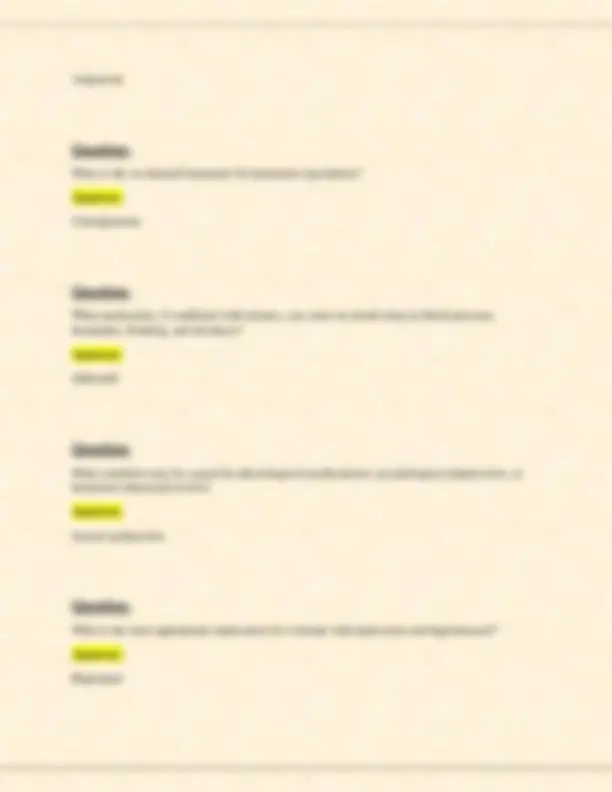
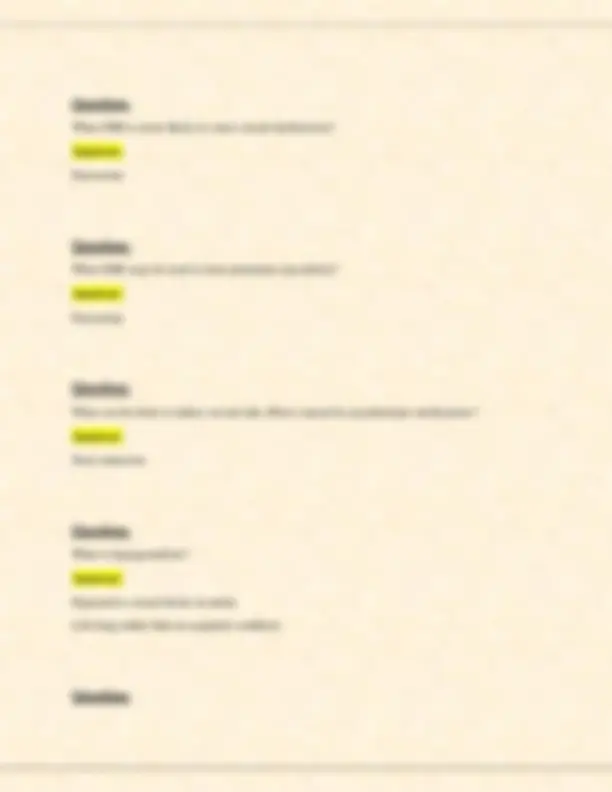
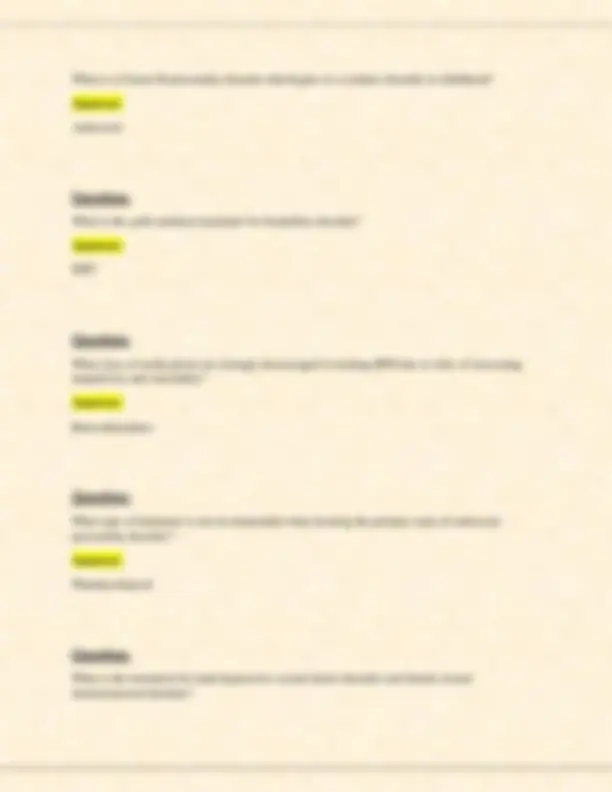
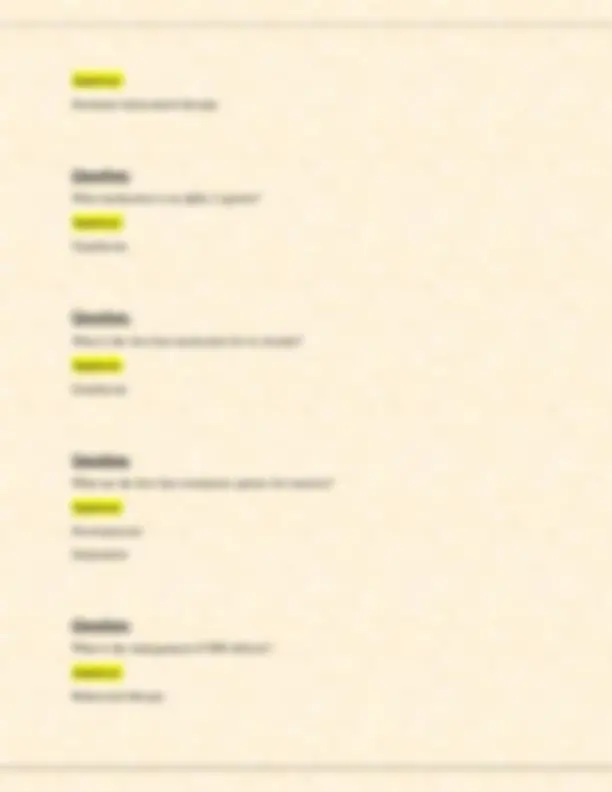
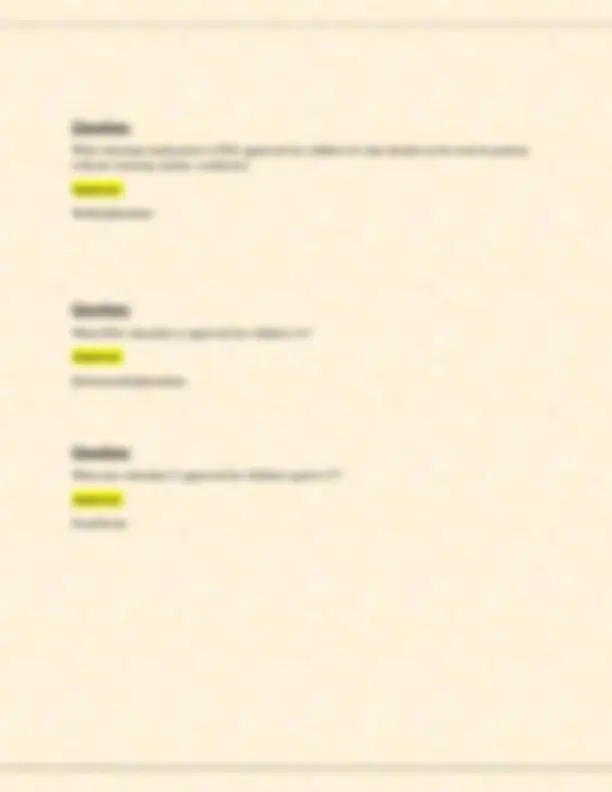


Study with the several resources on Docsity

Earn points by helping other students or get them with a premium plan


Prepare for your exams
Study with the several resources on Docsity

Earn points to download
Earn points by helping other students or get them with a premium plan
Community
Ask the community for help and clear up your study doubts
Discover the best universities in your country according to Docsity users
Free resources
Download our free guides on studying techniques, anxiety management strategies, and thesis advice from Docsity tutors
Exam 3: NSG552 / NSG 552 (Latest 2025 / 2026): Psychopharmacology | Grade A | Questions and Answers (Verified Elaborations) 100% Correct – Wilkes
Typology: Exams
1 / 25

This page cannot be seen from the preview
Don't miss anything!


















What is the mechanism of action of Naloxone?
Pure opioid antagonist that competes and displaces opioids receptor sites.
What medications treat opioid disorder?
Methadone; Buprenorphine, buprenorphine + Naloxone
What medication for opioid use disorder is used with comorbid pain?
Buprenorphine + Naloxone
Inappropriate use of what substance may be due to uncontrolled pain?
Opioids
What are the Naltrexone delivery methods?
Tablet; Injectable; Implant
What is one form of Naltrexone delivery method limited to inpatient use?
Implant
What is the mechanism of action buprenorphine?
Mu receptor partial agonist for opioid withdrawal
Restlessness; Yawning; Twitching; Increased heart rate and blood pressure; Chills; Increased temperature; Rhinorrhea; Lacrimation; Dilated pupils
What medication is given for opioid intoxication during cardiac or respiratory depression is a concern?
Naloxone
What are symptoms of cocaine intoxication?
Dilated pupils; Headache; Tremor; Hyper-reflexia; Twitching; MI; Nausea and vomiting;
Incontinence/ARF; Rhabdomyolysis
What is the treatment for cocaine intoxication?
Benzodiazepines; Antipsychotics; Management of medical problems that include hypertension, stroke, cardiac arrhythmias, hyperthermia, and seizures
What would not be the treatment for chest pain and MI from cocaine?
Beta blockers are to be avoided due to unopposed a-adrenergic stimulation.
What are the symptoms for alcohol intoxication?
Blood levels; Decreased reaction time; Muscle incoordination; Ataxia; Dysarthria; Respiratory failure;
What kind of half-life do diazepam and chlordiazepoxide have?
Longer half-life
What medications can you give for patients with hepatic dysfunction?
Oxazepam and lorazepam
What benzodiazepines with a long half-life are used to treat AUD?
Diazepam and chlordiazepoxide
What benzodiazepines with a moderate half-life are used in AUD patients with liver disease?
Oxazepam and lorazepam
What are the treatments for alcohol withdrawal symptoms?
Diazepam intravenous; Lorazepam intravenous or intramuscular; Thiamine intravenous or intramuscular; Addressing electrolyte imbalances
What are the treatments for DT?
Acute care management; Parenteral diazepam or lorazepam; Thiamine; Antipsychotics if necessary
What is the mechanism of action of disulfiram?
Via negative reinforcement, where drinking is avoided due to unpleasant effects.
What is the mechanism of action of Acamprosate?
What medication only deals with physical dependence, but does not address the psychological component of smoking?
What medications are oral stop-smoking aids?
Varenicline; Bupropion; Clonidine "Very Bad Cancer"
What are the "Very Bad Cancer" medications?
Varenicline; Bupropion; Clonidine
What medication for smoking cessation treatment should be observed for neuropsychiatric symptoms that include changes in behavior, hostility, agitation, depressed mood, and suicide- related events that include ideation, behavior, and attempted suicide?
Bupropion
What is the treatment for cocaine induced chest pain or myocardial infarction?
Intravenous benzodiazepines
What medications can treat agitation in patients with dementia?
Atypical antipsychotics
What type of medications are used only for short-term and acute episodes of aggression, agitation, and psychosis in patients with dementia?
Benzodiazepines
What medical emergency can be caused with TCAs, anticholinergics, benzodiazepines, non- benzodiazepines, corticosteroids, H2 blockers, and opioids in elderly patients?
Delirium
NMDA receptor antagonist that promotes synaptic plasticity.
What medication is used for moderate to severe dementia?
Memantine
What TCA has the fewest anticholinergic effects?
Nortriptyline
What TCA is the most appropriate in the elderly?
Nortriptyline
What type of medications are preferred in the elderly?
SSRIs
What medication is the most appropriate for elderly patients with MDD, insomnia, and decreased appetite? Mirtazapine
What medication may be used as an adjunct to antidepressants for sever depression or psychomotor retardation in low doses?
Methylphenidate
What medication is the best alternative to sedative-hypnotic use for insomnia in the elderly as it is less likely to cause memory impairment, paradoxical excitement, or rebound insomnia?
Trazadone
What is a reversible condition that may be caused by drugs, electrolyte imbalance, low O saturation, infection, reduced sensory input, intracranial events, urinary retention, or myocardial issues?
Delirium
What are the "Calm Teens Give Better Answers" medications?
TCAs; Clonidine; Guanfacine; Bupropion; Atomoxetine
What baseline measurements are needed prior to starting treatment for ADHD?
Height; Weight; Blood pressure; Heart rate; EKG
What medication is second-line treatment, a non-stimulant, used in patients with history of SUD, or when family prefers a non-stimulant?
Atomoxetine
What types of stimulants are use when patient needs a duration of action longer than 4 hours, improves adherence, and is less likely to be abused?
Intermediate or long acting
What are common adverse effects of stimulants?
Dizziness; Poor growth; Decreased appetite; Insomnia; Mood lability
What are "Dizzy Patients Demand Immediate Monitoring" symptoms?
Dizziness; Poor growth; Decreased appetite; Insomnia; Mood lability
What stimulant side effect may require discontinuation of medication?
Tics
What condition is pharmacological treatment initiated as first-line therapy after careful assessment and targets co-occurring disorders?
Intellectual disability
What medications should not be combined with stimulants?
SNRIs; Mood stabilizers; MAOIs; Antipsychotics; TCAs
What medications are "Stimulants Make Me Act Tense?"
SNRIs; Mood stabilizers; MAOIs; Antipsychotics; TCAs
What non-stimulant ADHD medication is most appropriate in a patient with co-occurring depression?
Bupropion
What type of medication class is considered a "reasonable choice" in a patient with co-occurring depression and anxiety?
What 2 medications are approved by the FDA to treat severe behavioral issues in ASD, specifically tantrums, self-injury, and aggression?
Risperidone;